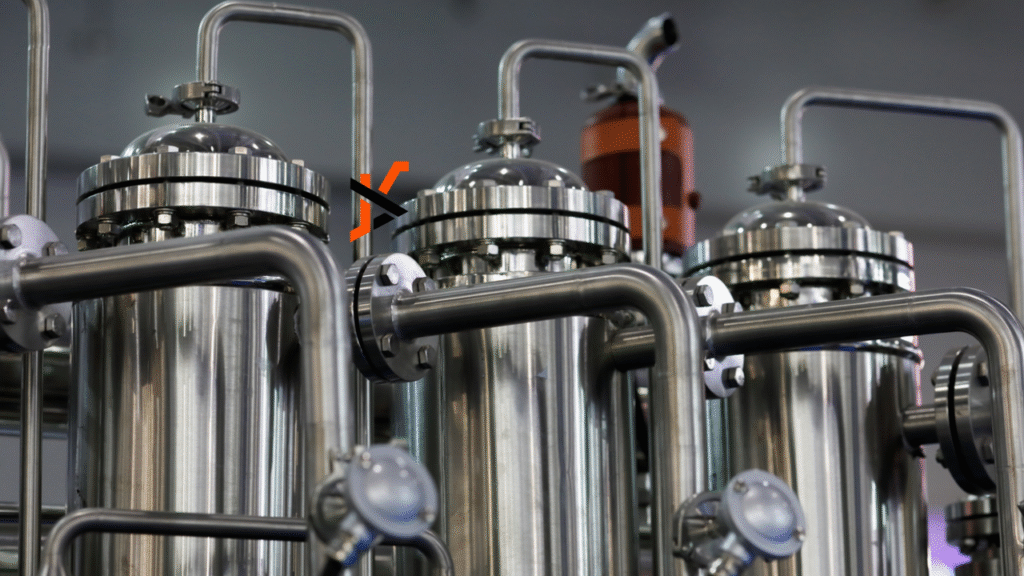Hard water affects millions of households across the United States, leaving behind mineral deposits, causing skin irritation, and reducing the lifespan of appliances. If you’ve noticed white spots on your dishes, soap scum buildup in your shower, or dry skin after bathing, you might be dealing with hard water issues that a water softener can solve.
Hard water contains high levels of dissolved minerals, primarily calcium and magnesium. Although these minerals don’t pose a health risk, they can cause various issues around the house. For residents dealing with particularly challenging water conditions, professional plumbing services in Scottsdale, AZ can provide expert assessment and installation of water softening systems tailored to your specific needs.
Understanding the benefits of water softeners helps homeowners make informed decisions about enhancing their water quality and protecting their investment in appliances and plumbing systems.
Understanding hard water and its effects
Hard water occurs naturally when groundwater passes through limestone, chalk, or gypsum deposits. The water picks up magnesium and calcium ions along the way, creating what experts measure in grains per gallon (gpg) or parts per million (ppm).
Signs you have hard water
Several telltale signs indicate hard water in your home:
- Soap scum buildup on shower doors and bathtubs
- White, chalky deposits on faucets and showerheads
- Spots on dishes even after washing
- Dry, irritated skin and dull hair after bathing
- Dingy, rough laundry that feels stiff
- Reduced water pressure from mineral buildup in pipes
The hidden costs of hard water
Hard water creates expensive problems that many homeowners don’t realize until significant damage occurs. Mineral deposits accumulate inside water heaters, reducing efficiency by up to 30%. Household appliances like washing machines and dishwashers work harder and break down sooner. Plumbing fixtures require frequent replacement, and cleaning products lose their effectiveness, leading to increased usage and costs.
How water softeners work
A water softener works using ion exchange, removing calcium and magnesium from your water. Inside the system, resin beads capture these minerals and replace them with sodium ions.
The ion exchange process
As hard water enters the softener tank, it passes through countless small resin beads. These beads have a negative charge that attracts the positively charged magnesium and calcium ions. The beads trap the minerals, replacing them by releasing sodium ions back into the water.
Regeneration cycle
Periodically, the system regenerates by flushing the resin beads with a salt solution. This process removes the accumulated minerals and recharges the beads with sodium ions, allowing the system to continue softening water effectively.
Key benefits of installing a water softener
Protection for your appliances
Water softeners help increase the longevity of appliances that rely on water. Without mineral buildup, water heaters operate more efficiently, dishwashers clean better, and washing machines last longer. This protection translates to substantial savings on repairs and replacements over time.
Improved skin and hair health
Soft water allows soap and shampoo to lather more effectively while rinsing away thoroughly. Many people notice softer skin and shinier hair within weeks of installing a water softener. The absence of mineral deposits means your skin retains natural oils instead of becoming dry and irritated.
Better cleaning results
Soft water transforms your cleaning routine. Soap scum disappears, dishes come out spot-free, and laundry feels softer and looks brighter. You’ll use less soap, detergent, and cleaning products while achieving better results.
Plumbing system protection
Mineral buildup in pipes reduces water flow and can cause expensive blockages. Water softeners prevent this accumulation, maintaining proper water pressure and extending the life of your plumbing system. This protection is especially valuable for homes with older pipes that are more susceptible to mineral damage.
Cost savings over time
While water softeners require an initial investment, they pay for themselves through reduced energy bills, fewer appliance repairs, and decreased cleaning product usage. Many homeowners see noticeable savings within the first year of installation.
Choosing the right water softener system
Sizing your system
Water softener capacity depends on your household’s water usage and hardness level. A family of four typically needs a system that can handle 20,000 to 30,000 grains of hardness. Professional water testing helps determine the exact size required for optimal performance.
Types of water softeners
Salt-based systems are the most effective option for dealing with severely hard water. They require salt refills but provide excellent mineral removal.
Salt-free systems use different technology to condition water without removing minerals. These systems work well for moderately hard water and don’t require salt maintenance.
Dual-tank systems ensure an uninterrupted supply of soft water by switching between tanks during the regeneration process. This option works well for large families or homes with high water usage.
Professional installation makes a difference
Water softener installation involves connecting the system to your main water line, electrical supply, and drainage system. Professional installation ensures proper sizing, optimal placement, and correct connections that prevent leaks or system failures.
Experienced technicians can also identify potential issues with your existing plumbing that might affect system performance. They’ll test your water hardness, recommend the right system size, and provide ongoing maintenance guidance to keep your investment running smoothly.
Conclusion
Hard water problems won’t resolve themselves, and the damage accumulates over time. Installing a water softener addresses these issues while providing immediate benefits you’ll notice throughout your home.
Consider scheduling a professional water analysis to determine your home’s specific needs. Expert assessment helps you choose the right system size and type for maximum effectiveness and value. With proper installation and maintenance, a quality water softener will provide years of improved water quality and protection for your home’s plumbing and appliances.
Don’t let hard water continue damaging your home and affecting your daily comfort. Take the first step toward softer, cleaner water by consulting with water treatment professionals who can design a solution tailored to your specific situation.

